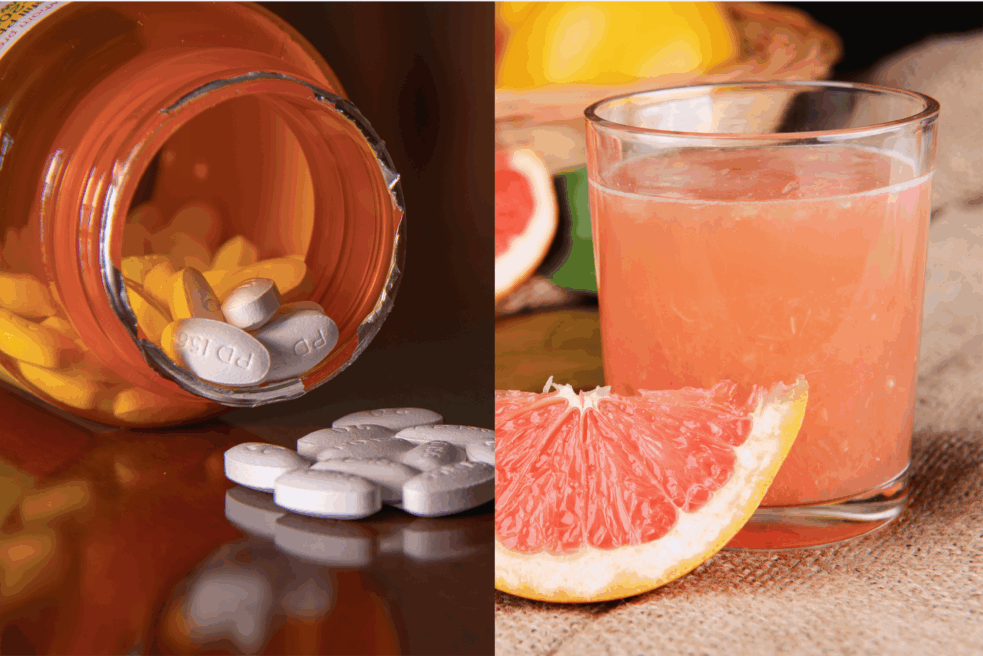Grapefruit is loaded with vitamin C and potassium, essential components of a nutritious diet. However, grapefruit juice can impact the effectiveness of certain medications, like Lipitor. Individuals taking Lipitor (or other cholesterol-lowering statin drugs) may want to avoid ingesting grapefruit, as in some instances, the combination may result in increased side effects and prevent Lipitor from working properly.
Grapefruit Juice and Lipitor Interactions: Muscle Damage
Lipitor (atorvastatin) is a statin prescribed to treat high cholesterol and help prevent heart attack and stroke. It works by reducing the amount of low-density lipoprotein (LDL) cholesterol (often called “bad cholesterol”) and triglycerides in the blood. It also increases blood levels of high-density lipoprotein (HDL) cholesterol (known as “good cholesterol”).
The conflict between grapefruit juice and Lipitor lies in how the body metabolizes the drug, says Mary Greene, M.D., a cardiologist who specializes in cardiovascular disease medicine at Manhattan Cardiology in New York City.
Lipitor is metabolized primarily by the liver enzyme CYP3A4 — part of the cytochrome P450 system. Grapefruit juice contains high levels of compounds called furanocoumarins that inhibit this enzyme, explains Dr. Greene.
“When grapefruit juice is consumed, it can lead to decreased metabolism of Lipitor, resulting in higher blood levels of the drug,” says Dr. Greene. “The inhibition of CYP3A4 can increase the risk of side effects associated with Lipitor, such as muscle pain or damage (myopathy/myalgias) and elevated liver enzymes, which should be routinely monitored while taking Lipitor.”
Consuming grapefruit in any form while taking Lipitor isn’t recommended, but Dr. Greene explains that drinking grapefruit juice, in particular, is especially discouraged.
“The interaction is primarily associated with the juice because the furanocoumarins are present in higher concentrations in the juice compared to the whole fruit,” Dr. Greene says. “Therefore, drinking grapefruit juice poses a more significant risk of interaction.”
Alternatives to Consider When It Comes to Grapefruit Juice and Lipitor
Not all statins are affected by grapefruit juice to the same degree, so people who don’t want to give up their morning glass of the citrus fruit can talk to their doctor about possibly switching to a different drug.
For those who want to stay on Lipitor, plenty of non-grapefruit juice options exist. Dr. Greene says orange juice, apple juice, and cranberry juice are generally safe for individuals taking Lipitor since they don’t have an inhibitory effect on CYP3A4.
“These alternatives do not interact with the cytochrome P450 system in the same way as grapefruit juice, thus avoiding the risk of increasing Lipitor levels and the associated potential side effects,” says Dr. Greene.
It’s also important to note that not every doctor or researcher considers Lipitor and grapefruit an inherently risky combination. For instance, a 2011 study in the British Journal of Clinical Pharmacology found that individuals drinking 10 ounces of grapefruit juice daily for 90 days while on the drug experienced no observable negative effects on the liver or muscles. Similarly, a 2018 paper published in Arteriosclerosis, Thrombosis, and Vascular Biology notes that eating “half a grapefruit a few times a week is unlikely to be clinically consequential” in individuals taking Lipitor.
Want to learn more about how popular medications interact with over-the-counter drugs and supplements? Check out two more articles in our interaction series: Can I Take Excedrin With Wellbutrin? and






